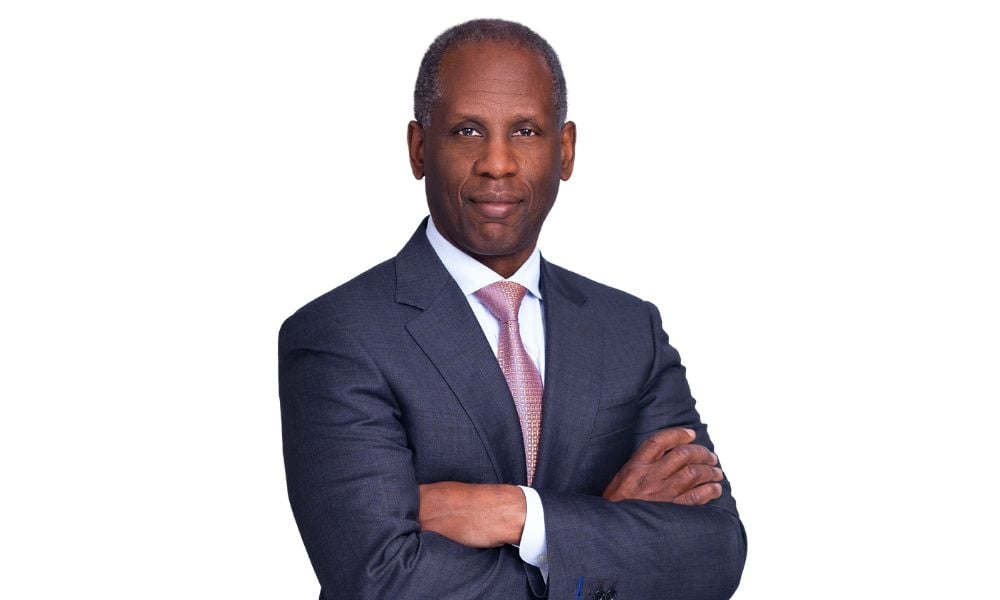Davis left private practice in the 90s and returned with new skills to help his adopted firm evolve

After working in-house for over 15 years, Paul Davis was considering offers from several law firms in 2010. One firm – Lang Michener, which merged soon after with McMillan – intrigued him the most.
“The offer was ‘come do whatever you want to do,’” says Davis.
Davis chose to advise companies in public M&A and shareholder activism – areas he had retained a passion for throughout his in-house career.
“I had no book of business, so I was starting from scratch. But people always laughed at me before as an executive of a public company when I was reading securities law cases. I still had that academic bent, and I still liked securities law. That knowledge was always with me.”
Davis’ M&A and shareholder activism career started in the 1980s when he joined Davies Ward Phillips & Vineberg LLP as a law student at the University of Toronto.
Before law school, Davis had studied economics at Carleton University for two years. He says he tried to finish his education quickly since his family was not well off. Davis’ parents had emigrated to Canada from Jamaica with him and his brothers when he was 12. He always wanted to be a lawyer even though there were no professionals in his family.
“They made immense sacrifices coming here, which was clearly just for their boys,” Davis says.
Davis was the only Black student in his class at U of T but “never felt any pressure or different because of that. My parents brought us up not to whine and to accept that we had to work harder than everybody else and that the only excuse for failure would be us. And don't let others define you.”
Davis quickly knew that corporate law was what he wanted to practise. He gravitated to Davies, where lawyers worked on the hostile takeover bids and large M&A transactions covered in the Report on Business.
Davis says he received great mentorship and training at the firm and he was made equity partner by 30.
However, he had also started a family with his wife and had three children under four. “I needed a better life balance at that point in my life,” he says, so he took a job with a client and left thinking he would never return to private practice.
So, Davis tried merchant and investment banking but didn't enjoy these jobs.
A business mentor of Davis’, the chair of Slater Steel, invited Davis to join the company’s management team. Davis said he wanted a broader role than just general counsel, so Slater offered him a seat at the executive table and also put him in charge of human resources.
Davis gained experience acting as the company spokesperson and managing HR issues like negotiating with unions, layoffs, hiring, compensation, and managing defined benefit pension plans.
His most significant mandate at Slater, though, was when the company, like all unionized steel companies in North America, went through the CCAA/Chapter 11 bankruptcy. It never got out.
“I was the last person left to clean up what was left. And that actually took a while.”
Davis’ management experience and training he received at Slater came in handy when he returned to private practice at McMillan. He became the head of the capital markets and M&A group in 2016. He says he wanted to grow the group and ensure it was a primary contributor to the firm's revenues and profit, which it now is.
In 2022, Davis became the chair of the firm’s board as it overhauled its governance structure as part of its strategic plan.
“McMillan is in some ways a corporation, notwithstanding we're a law firm which is a unique animal where your partners are owners in some ways, [and] executives or employees in other ways.”
The firm has moved much more in the corporate direction with its recent strategy. “We're more focused on how you'd manage a corporation in terms of profit drivers, growing the business or thinking about margin, [and] recognizing fully that your people are your greatest and really your only asset.”
He says part of that recognition meant an overhaul of their mentoring and recruitment to ensure the firm was more objective instead of relying on traditional processes that allowed biases to creep in.
Davis said accommodation was a dirty word in the legal profession 10 years ago. Now, the firm recognizes it is about “focusing on making accommodations for people and as they go through issues to ensure that they stay with us long term.”
Externally, “there's more and more EDI outreach. And, for me, it's not about any tokenism or affirmative action.”
As part of its EDI shift, the firm realized that unconscious bias training wasn’t working. So, it brought in consultants to help them change how they recruited.
That meant asking more standardized interview questions and limiting the number of internal decision-makers in the room to avoid biases. It is “an intentional effort to ensure that we hire the best people, we keep the best people, and we promote the best people without biases. And ultimately, I think that is EDI.”










